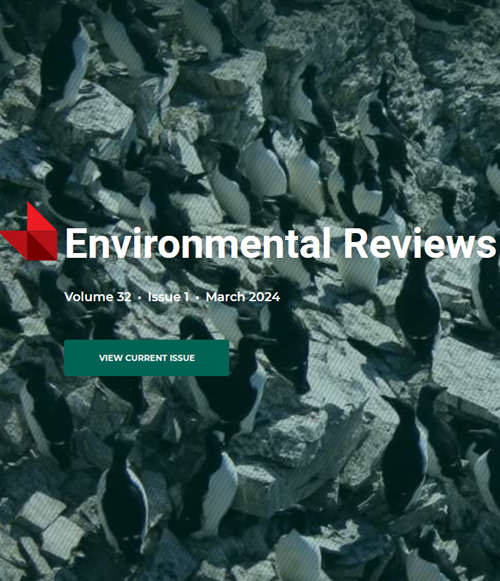加拿大与土著社区和组织建立大规模可再生能源伙伴关系的回顾
IF 5.1
3区 环境科学与生态学
Q2 ENVIRONMENTAL SCIENCES
引用次数: 0
摘要
本文回顾了土著居民对可再生能源项目的参与,并讨论了各利益相关者与土著合作伙伴之间能源伙伴关系的主要要素。近年来,加拿大目睹土著居民比以往任何时候都更积极地参与经济和能源发展项目。大规模能源伙伴关系的关键组成部分侧重于社区参与、金融资本、社区参与(具备创业和商业技能的准备)以及与社区合作伙伴分享利益。股权、和解和自决与能源项目的利益和可持续性相互交叉并产生影响,因为它们在大多数能源伙伴关系的框架内是相互关联的。此外,本文还说明了文献中能源项目的特点,以及与土著社区之间的伙伴关系制定、社会结果和决策制定相关的政策脱节。此外,文献的研究结果探讨了在促进与土著社区的大规模可再生能源伙伴关系时与和解相关的社会影响和能力挑战的微妙论述。通过对文献的系统回顾和荟萃分析,我们在筛选过程中发现了80个相关项目,并选择了33个项目进行分析。研究结果表明,政府、能源公司和社区合作伙伴需要密切协调和合作,以在不久的将来实现能源安全和可持续的可再生能源。该审查表明,土著参与能源伙伴关系有助于土著社区的社会发展和环境保护取得积极成果。此外,如果政府和行业合作伙伴在项目实施过程中提供指导,并帮助其他社区,就可以实现对能源转型和自给自足的大规模积极影响。本文章由计算机程序翻译,如有差异,请以英文原文为准。
A Review of Large-Scale Renewable Energy Partnerships with Indigenous Communities and Organizations in Canada
In this paper, Indigenous engagement in renewable energy projects is reviewed and the main elements of energy partnerships between various stakeholders and Indigenous partners are discussed. In recent years Canada has witnessed more significant Indigenous involvement in economic and energy development projects than ever before. The key components of large-scale energy partnerships focus on community engagement, financial capital, community buy-in (readiness with entrepreneurial and business skills) and benefits-sharing with community partners. Equity-ownership, reconciliation and self-determination intersect with and impact the benefits and sustainability of energy projects as they are interrelated in the framework of most energy partnerships. In addition, this paper illustrates features of energy projects in the literature and policy disconnects in connection with partnership-making, social outcomes, and decision making among Indigenous communities. Furthermore, findings from the literature explore the nuanced discourse on social implications and capacity challenges that interlink with reconciliation when promoting large-scale renewable energy partnerships with Indigenous communities. Through systematic review and meta-analysis of the literature, we found eighty relevant items during the screening process and selected thirty-three for the analysis. Findings demonstrate that the Crown, energy companies and community partners need to coordinate and collaborate closely to achieve energy security and sustainable renewable energy in the near future. The review suggests that Indigenous engagement in energy partnerships supports positive outcomes for social development and environmental protection among Indigenous communities. Further, when government and industry partners mentor in the project implementation process, as well as help other communities, large-scale positive impacts on energy transitions and self-sufficiency can be realized.
求助全文
通过发布文献求助,成功后即可免费获取论文全文。
去求助
来源期刊

Environmental Reviews
环境科学-环境科学
自引率
3.50%
发文量
45
期刊介绍:
Published since 1993, Environmental Reviews is a quarterly journal that presents authoritative literature reviews on a wide range of environmental science and associated environmental studies topics, with emphasis on the effects on and response of both natural and manmade ecosystems to anthropogenic stress. The authorship and scope are international, with critical literature reviews submitted and invited on such topics as sustainability, water supply management, climate change, harvesting impacts, acid rain, pesticide use, lake acidification, air and marine pollution, oil and gas development, biological control, food chain biomagnification, rehabilitation of polluted aquatic systems, erosion, forestry, bio-indicators of environmental stress, conservation of biodiversity, and many other environmental issues.
 求助内容:
求助内容: 应助结果提醒方式:
应助结果提醒方式:


